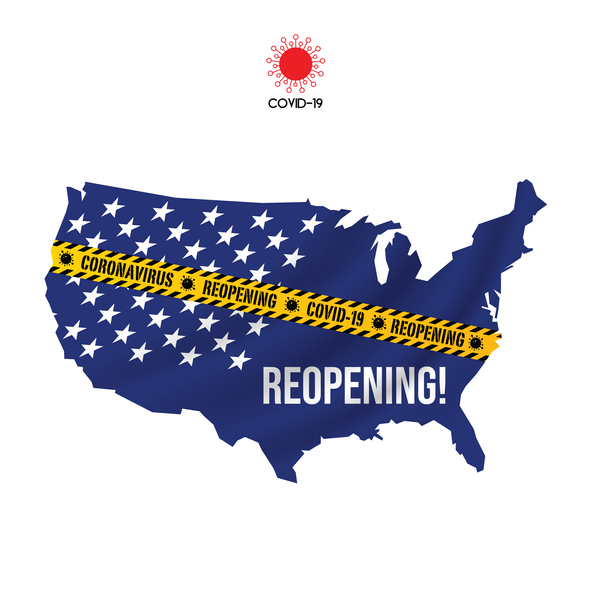
In the same day, two headlines came out – all 50 states have begun reopening, and 54% of U.S. counties don’t have a Covid-19 testing site, according to a report by Castlight. How can they both be true when widespread testing is needed to safely reopen?
Not surprisingly, a recent Associated Press-NORC Center for Public Affairs Research survey finds that 83% of Americans are at least somewhat concerned that lifting restrictions in their area will lead to additional infections.

With the Rise of AI, What IP Disputes in Healthcare Are Likely to Emerge?
Munck Wilson Mandala Partner Greg Howison shared his perspective on some of the legal ramifications around AI, IP, connected devices and the data they generate, in response to emailed questions.
Employers struggle with when to bring back employees, and employees are hesitant to return to work. Covid-19 will be a factor for some time and if we don’t get reopening right, it will be even harder for people to trust going back out after a second difficult wave.
Getting America back to work and reengaging as consumers safely must be a priority. Without feeling safe and confident, individuals will not be willing to dine in restaurants, go shopping or head into work.
A few things must happen quickly. First, we need robust antibody tests and contact tracing for everyone. The Google and Apple announcement is a great start and just the beginning. We need solutions that are algorithmically driven and go beyond self-reporting to ensure accuracy and reduce unnecessary anxiety.
All testing is not created equal and testing someone for symptoms versus immunity is quite different. When people receive results, they should be able to understand them — early versus late-stage antibodies, for example. Also, the manufacturer for each test should be recorded because, unfortunately, some will not perform well and may need retesting.
We need coordinated communication on testing across sites and vendors for a unified, national view. Right now, dozens of companies are developing tests without a common technology backend. If this information cannot be shared, we will have failed – causing a massive public health concern now and in the future, as we study to learn from this pandemic and better prepare for the future. Look no further than the pitfalls of electronic medical records to see the consequences.
After testing and clear communication are in place, digital health will guide us to what is safe by enabling in-home testing, compiling results and information in one shared place, the ability to monitor and drive safety. Digital health can accelerate and automate contact tracing, track symptoms and capture test results that move people to the right protocol. By tracking flare-up locations and virus progression, we can quickly limit its spread and become more confident in where it is not present.
Capturing testing results gives visibility into hot spots at worksites and in communities. Doing this in a secure, compliant, regulated format protects personal health information, while employers have accurate, timely and continuously updated data to get employees back to work.
To move forward and catalyze the economy again, we must instill confidence in individuals, so they feel safe. This requires the right testing, communication and infrastructure to be in place for sharing data while protecting privacy. These investments will not only address Covid-19, but also prepare us for the future. We will be able to scale, make information from digital tools actionable and safely reopen this country for us to confidently return to work.
Mark Bertolini most recently served as CEO & Chairman of Aetna. Kal Patel, MD, is the CEO and Co-Founder of San Jose, Calif.-based BrightInsight.














